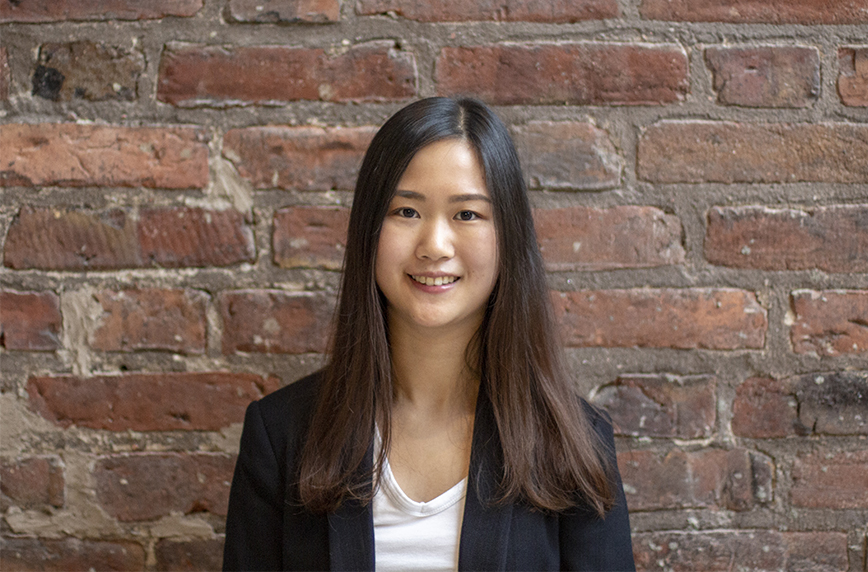The students will acquire a strong academic background as well as insights into the industry through case assignments and interactions with companies
Nishapa is from Bangkok, Thailand. She graduated with a Bachelor's degree in Applied Chemistry from Chulalongkorn University in Thailand. Food, travelling and music are her passions.

Why did you choose this master's programme at KTH?
The Master's programme in Industrial Management from KTH is a unique programme that is different from other management programmes. This programme captured my attention since I had a major in industrial chemistry and management for my bachelor's degree and I have been working in the management field. I therefore wanted to continue studying management, to which I could apply my scientific background. So this programme is a perfect match for me. In terms of the university, KTH is ranked as one of the top universities in Sweden and Europe. I had heard about KTH’s excellent reputation when I did my bachelor thesis at Uppsala University. This motivated me to pursue a master's degree here at KTH.
What are the best aspects of your programme?
In my opinion, the programme structure is the most significant aspect. The programme was designed for students with an engineering background who want to gain comprehensive knowledge about the industry in order to pursue a management career in the future. Thus, the students will acquire a strong academic background as well as insights into the industry through case assignments and interactions with companies.
Have you chosen a specialisation track within the programme? If Yes, which track and why?
There are no solid specialisation track options in the programme. However, we have elective courses that can be chosen based on our own interest and these can be regarded as a specialisation. For example, I chose the Global Energy Markets and Systems in Transition course due to my interest in the energy sector.
What are your favourite courses thus far?
My favourite course from the programme is the Perspectives on Industrial Management (PIM) course. This course provides an overview of the industry. The course includes many interesting learning activities such as practical case assignments, seminars, guest lectures and a study visit. It allowed me to apply the theory to the practical cases and challenged my reflection on how my study in the programme will be related to the industry.
How do studies at KTH differ from your previous studies?
Firstly, the period system at KTH is totally different from my home university. The academic year at KTH comprises two semesters and each semester comprises two periods. Secondly, the examination concept is different. There are no classes held in the week before an examination, which is called the exam-preparation period. Moreover, the concept of re-examination to achieve a better grade is also new to me. Lastly, the class schedule is distinctive. All classes, except seminars or guest lectures, start at a quarter past (it is called academic time). Also, the class schedules are not fixed. We can have different places and times for the same course during the same week.
How is student life in Stockholm?
Student life in Stockholm is great! There is much to explore in Stockholm and many activities in which to engage. Communication is not an issue here since everyone can speak English pretty well. Living in Stockholm can be quite expensive but there are some benefits from being a student. For example, you can apply to join the student housing queue and get a student discount for public transport. Also, KTH’s main campus is located in the city so it is very convenient to get around and explore the city. The only difficulty I experienced was the darkness during the winter, but I know it will get better.
How would you describe your time at KTH so far?
I would say I spend most of my time at KTH since I live on the campus.
I attended the THS international reception at the start, made lots of friends at the pre-sessional English course and participated in few campus activities such as the career fair. When the semester started, I spent time in class and working on assignments with my friends at the library or in Nymble. Recently, I have been working as part of a student organisation called KTH Foodtech where I got to work and connect with other students, foodtech companies and other KTH organisations.
What do you want to do after graduating?
I always want to work in the field of human resources since I have had some work experience in this field prior to my studies at KTH. However, I recently developed an interest in start-ups as I had been working with some foodtech start-up firms. Thus, working at a start-up might also be a good option, especially since Sweden is quite well known for its start-ups.
What would you like to say to students thinking of choosing KTH for their master's studies?
Don't hesitate to apply – you will not regret it! KTH gives its students a solid academic background as well as extensive skills that can be applied to a future career. KTH will offer you the best experience and the best education.
